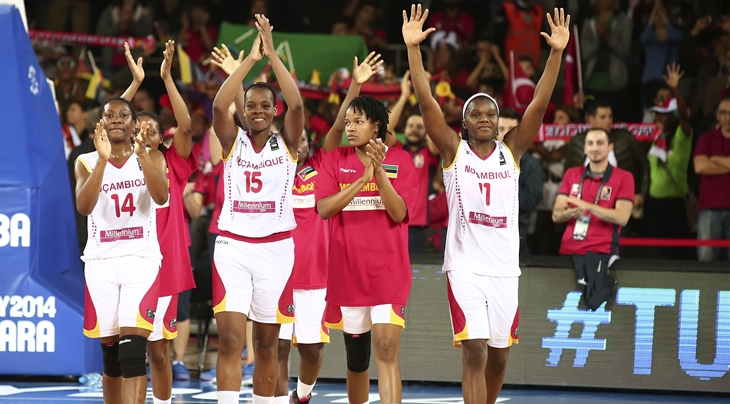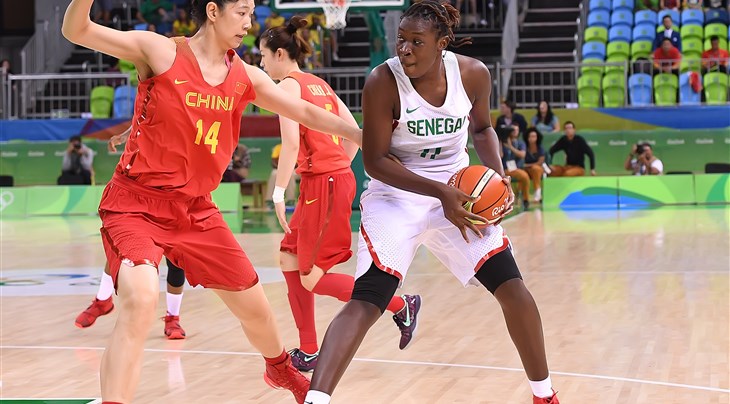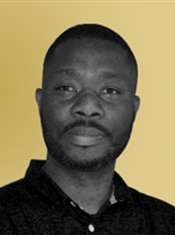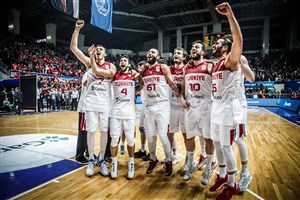
Could Nigeria and Senegal make 2018 a year of change for Africa women's basketball?
SHEFFIELD (Julio Chitunda's African Message) - There are a number of reasons why Nigeria and Senegal should try to change the course of history at this year's FIBA Women's Basketball World Cup in Tenerife in September (22-30).
Over the past four decades, African teams have never won more than two games in each of their appearances.
Tunisia, Kenya, Angola, the Democratic Republic of Congo, Mozambique, Mali, Nigeria, Madagascar, have all tried, but only seven-time FIBA Women's Basketball World Cup participant Senegal managed two wins in the 1990 edition against hosts Malaysia and the Democratic Republic of Congo.
 Mozambique - alongside Angola - represented Africa at 2014 FIBA Women's Basketball World Cup in Turkey
Mozambique - alongside Angola - represented Africa at 2014 FIBA Women's Basketball World Cup in Turkey
So when fellow FIBA columnist Jeff Taylor told me - prior to the 2016 FIBA Women's Olympic Qualifying Tournament (WOQT) - that "African women's basketball in major tournaments over the years is for me too strong of an indicator about the gulf in class that persists," I thought that Taylor's assessment reflected the world's perception of women's basketball in Africa.
Nevertheless, Nigeria's terrific WOQT performance against Europe heavyweights Belarus - despite a 71-60 defeat - that was followed by a triumph over Korea should have bolstered Nigeria's confidence at the upcoming World Cup.
As long as Nigeria keep at least half of their roster that took Bamako by a storm last August, where they won all their eight FIBA Women's AfroBasket games before being crowned African champions for the first time since 2005, and bring back head coach Sam Vincent, they will be able to make some noise in Tenerife.
The Nigerians may be the lowest-ranked team (34th) in a 16-team field that includes seven teams in the top-10 of the FIBA Women's World Ranking, and they may have never won a World Cup game, but we can't just ignore their competitiveness and talent displayed in recent years.
June 14th, 2016 WOQT Day 2. PEAK Nigeria will face Korea at 12:30, PEAK New Zealand will face France at 20:30. pic.twitter.com/iAi2LwA1DR
— Peak Sport (@PeakSportHQ) June 14, 2016
Reaching the Quarter-Finals may seem a mirage to African teams in Tenerife, but the rising number of Nigerian and Senegalese players currently in Europe's major leagues - Astou Traore, Adaora Elonu, Sarah Ogoke - just mention a few, as well as those teams' burning desire to change the course of history, make these two teams respectable oppositions.
Senegal have made some changes by signing head coach Cheikh Sarr as a replacement to Moustapha Gaye.
Sarr is not new to the world stage, making the Tenerife showpiece a comfort zone for Senegal.
Wolves’ Gorgui Dieng Helps Senegal Upset Croatia, Continues FIBA Beast Mode http://t.co/Hfl3yw5j58 http://t.co/ktitoWI45d
— Dime on UPROXX (@DimeUPROXX) September 2, 2014
He is the man who inspired Senegal men's team to an impressive campaign at the 2014 FIBA Basketball World Cup, which saw the Western Africans shocking Europe's heavyweight Croatia in the Group Phase, falling to hosts Spain in the Final Phase in Madrid.
 Maimouna Diarra averaged a team-high 6.2 rebounds per game at 2016 Rio Olympics
Maimouna Diarra averaged a team-high 6.2 rebounds per game at 2016 Rio Olympics
If Maimouna Diarra - who missed out the African Championship in August due to her WNBA commitments with the Los Angeles Sparks - returns in September, the Senegalese will surely see their frontcourt strengthened and will be capable of fighting against taller and heavier European opposition.
The clock is ticking, and nine months from now should be time enough for both African countries plan and prepare the long-awaited moment at 2018 FIBA Women's Basketball World Cup.
Julio Chitunda
FIBA
FIBA's columnists write on a wide range of topics relating to basketball that are of interest to them. The opinions they express are their own and in no way reflect those of FIBA.
FIBA takes no responsibility and gives no guarantees, warranties or representations, implied or otherwise, for the content or accuracy of the content and opinion expressed in the above article.

















